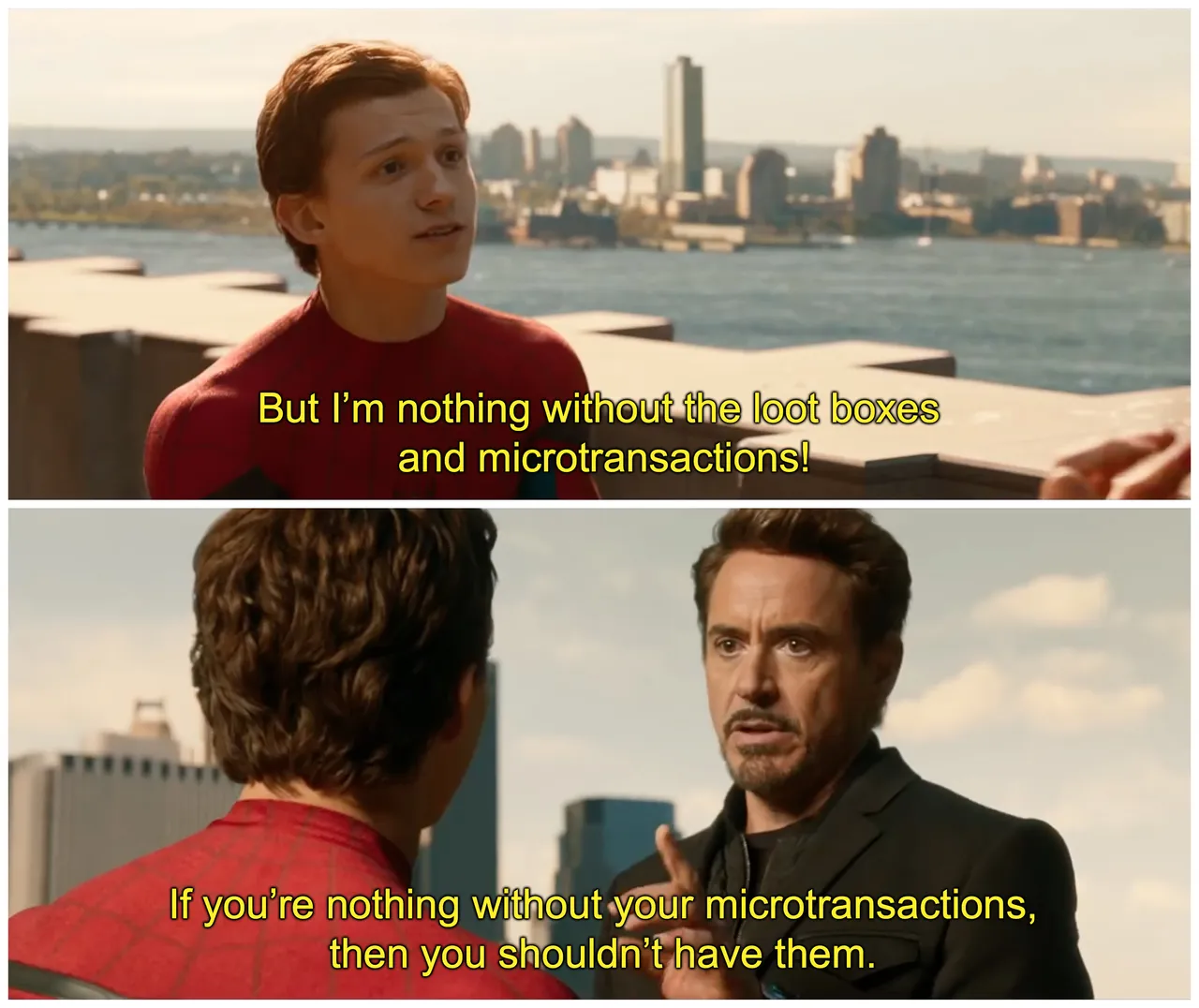
Micro-transactions are a difficult thing. Not difficult in the sense of their concept, but rather how they are implemented. Some games are based solely around Micro-transactions, offer a P2W(Pay to win) model, just have them there to either save the player time, or just to give them nifty things such as cosmetics that don’t really affect anything. In case you're new to my “My Gaming Experience” series, this is a series where I talk about the things I experience, bitch, and just write my thoughts down about certain topics. I decided to start this series mostly for my more opinionated views, which I have a lot of. So, with that out of the way, let’s talk about micro-transaction.
The first time I ever encountered micro-transactions, I was around 12 years old. This was when a lot of places allowed you to buy “credits” through SMS, and boy, was that a mistake. 12-year-old me went nuts. There were months when my cell phone bill would be stacked with credits bought for Habbo, or Turbine points for LOTRO. My father would call up the company, argue with them and get it taken off the bill. Of course, I denied that I actually did it. When I talk about it with my parents now, we laugh. But let’s get back on track. These games didn’t have a P2W model, unless you were playing a game someone set up in Habbo. Credits in Habbo were mostly used for cosmetic purposes, and Turbine Points were used to unlock things in the Turbine shop, such as expansions. The thing with the Turbine Points is that you can actually get them by doing deeds in game. And despite my father getting a refund on hundreds of dollars from Turbine(now standing stone) I still have, and play on the account I used when I was 12.
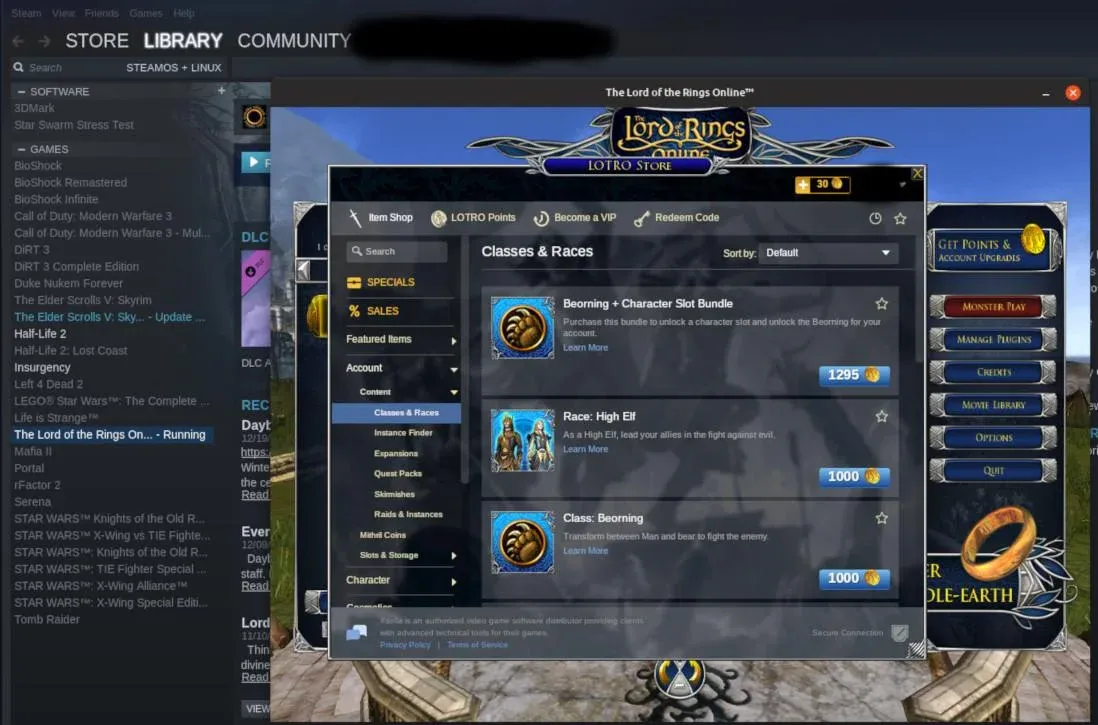
When people hear a game has micro-transactions, their reaction goes straight to the negative, and who can blame them? But I don’t think they’re evil like a lot of gamers do. When it comes to games that offer cosmetics, or battle pass type things, I 100% think that it benefits the communities, as it’s a way for the devs to earn money after the initial purchase of their game and as a result offer more support to the game. I mean, look at Rockstar. A lot of people hate how you can buy GTA cash in the game, but because of this micro-transaction, Rockstar has been able to give away every single piece of their dlcs for free.
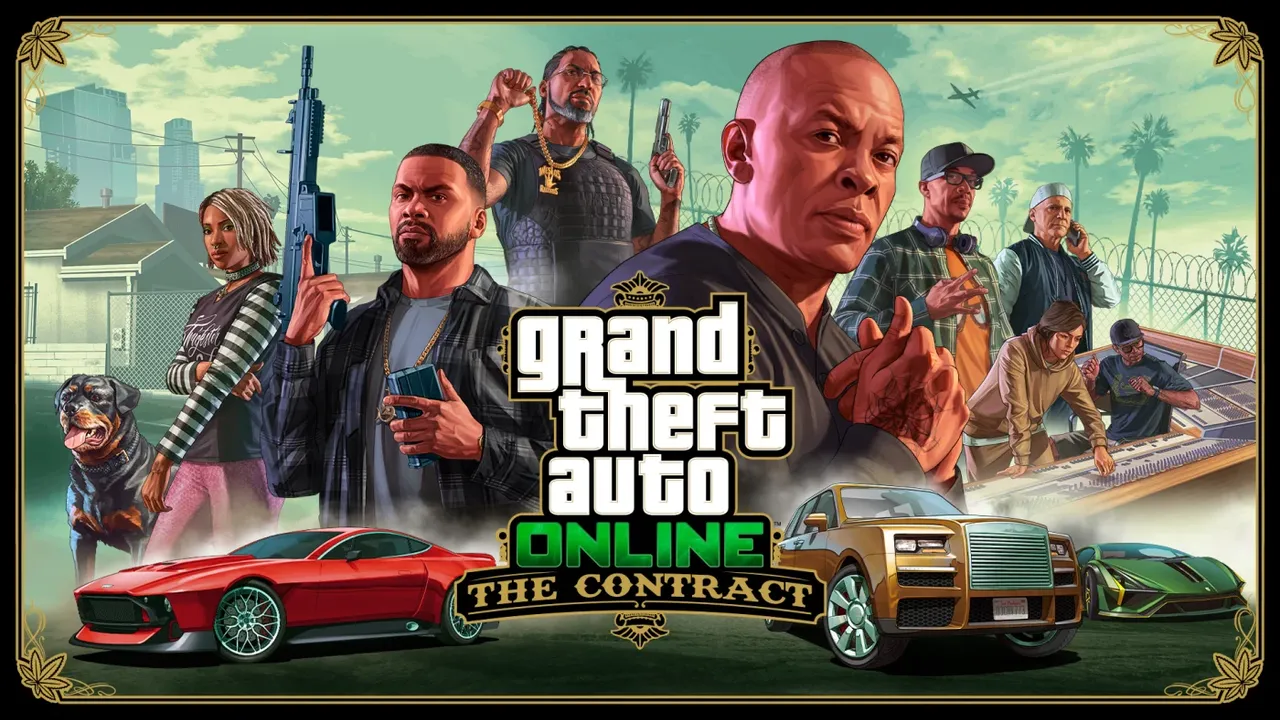
When they do become a problem for me is when the game, or certain aspects of it, are built around them. Now, this isn’t talking about F2P games, as the devs need to make their money somewhere, but this is talking about games you actually have to pay for that have these mechanics. And the first one that comes to mind is/was Shadow of War.
For those that don’t know, Shadow of War is a sequel to the Lord of the Rings game, Shadow of Mordor. In it we play as a ranger that is possessed by the spirit of Celebrimbor. In the game it was Celebrimbor who forged the rings for the humans, elfs, and dwarves, while Suron forged the one. Shadow of War has us forging a new ring so that we can help defeat Suron.
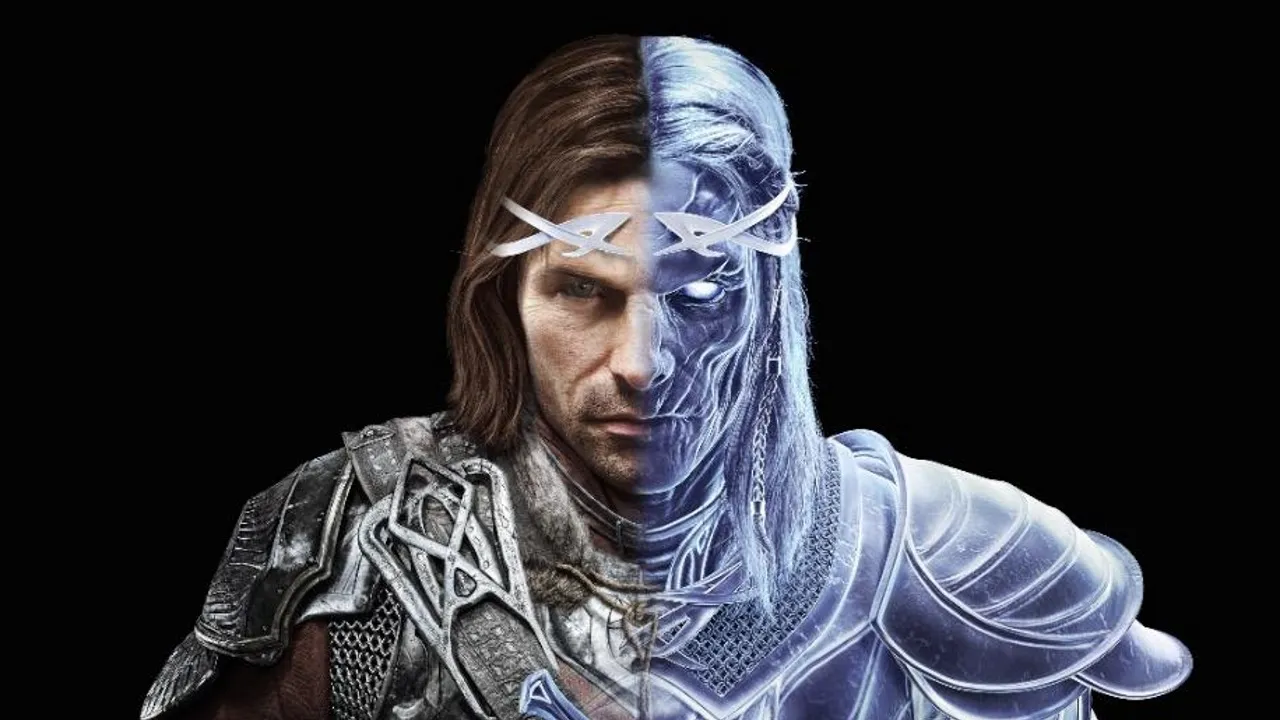
With that little info dump down, it’s time to get down to the problem. The end game of SoW revolves around us having to defend the castles we captured during the game. In order to do this, we need to make sure the orcs we brainwashed are always levelled up. Which when I played took a hell of a long time. When it came down to it, I often had to create a whole new army with each siege, and it was the same with a lot of other people. Unless you wanted to buy “loot boxes” that dropped orc followers that were around your level.
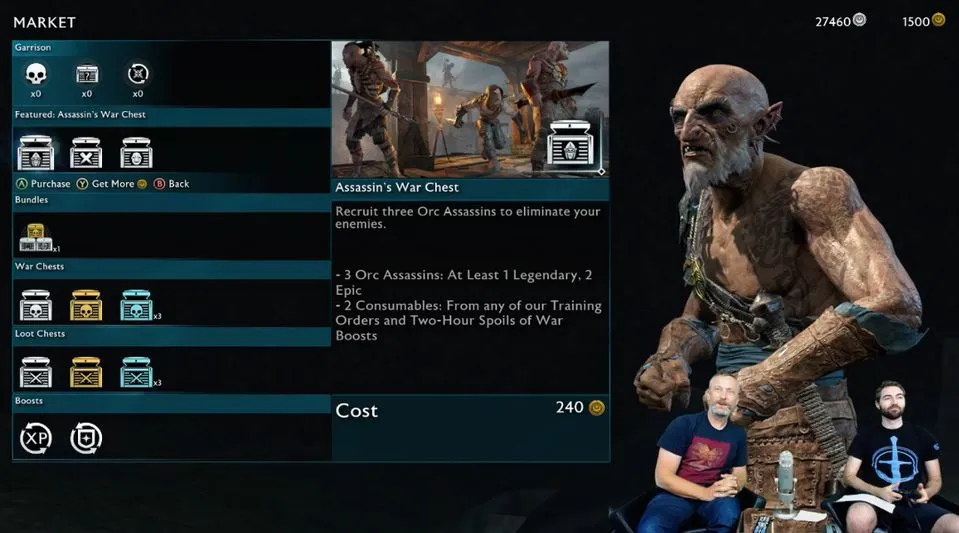
Players saw the end game for what it was, a micro-transaction grab. They did eventually patch this, making the endgame half the length as it was before. But I had to suffer through the entire thing. It took me close to 8 or so hours over a couple of games to complete the endgame, which just consisted of the same thing. You go to territory A, make sure all your orcs in that region are levelled, if not you recruit more orcs, or level the ones you have up, then defend against the siege. And at the end of all this, all we got was a cut-scene that takes place when The One Ring is destroyed. Although I loved the cut-scene as it offers closure for Talon(the main character) it really wasn’t worth the grinding.
Spoiler: I’ll leave the clip for the video below. During the Endgame Talon is wearing a new ring from a Ring Wraith he had slain and is slowly turning into one. His entire plan was to keep Suron’s forces busy in Mordor so he wouldn't attack the other lands..

So this brings us to the next piece of this article, Loot boxes. Loot boxes are gambling. That’s a fact, not an opinion. You throw down money in the hopes of getting something good, but you can also get something bad. My opinion when it comes to loot boxes is complex. I don’t think they’re a bad thing, if we are talking about them being in M+ games, as long as there is a way to earn currency in game to get them, and the items don’t effect gameplay. I think that there are zero reasons to have something purchasable, with real money, that can give a player an unfair advantage over the others.
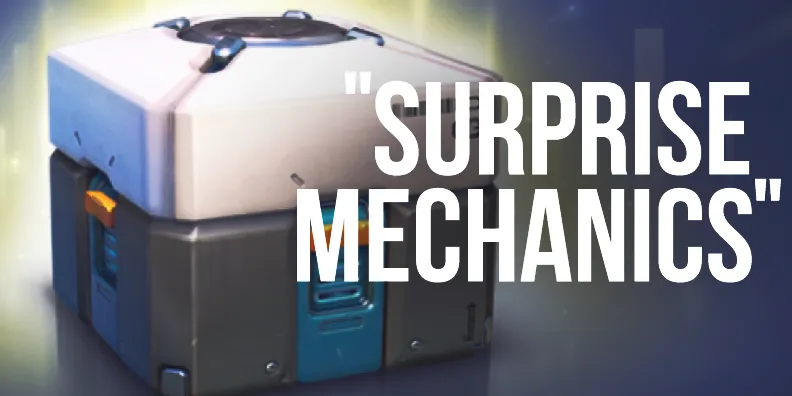
Finally, we get to the last piece of this otherwise semi short article, and that’s talking about “short-cut” micro-transactions. When I think about these, Ubisoft immediately jumps into mind. These packs usually offer you a quick way to get something, in Ubi’s case, they often include EXP boosts, the ability to see all collectibles on your map, etc. And tbh, I don’t think these are bad. My general rule of thumb for micro-transactions( outside of items that give an unfair advantage.) is that if you can get it in game, or earn in game currency to buy the item, then it’s okay.I personally have bought these types of micro-transactions in AC games, mostly the collectible one for Black Flag. I did this because I was going for the Plat, and didn’t want to be constantly looking at my phone to see where the next collectible was located.
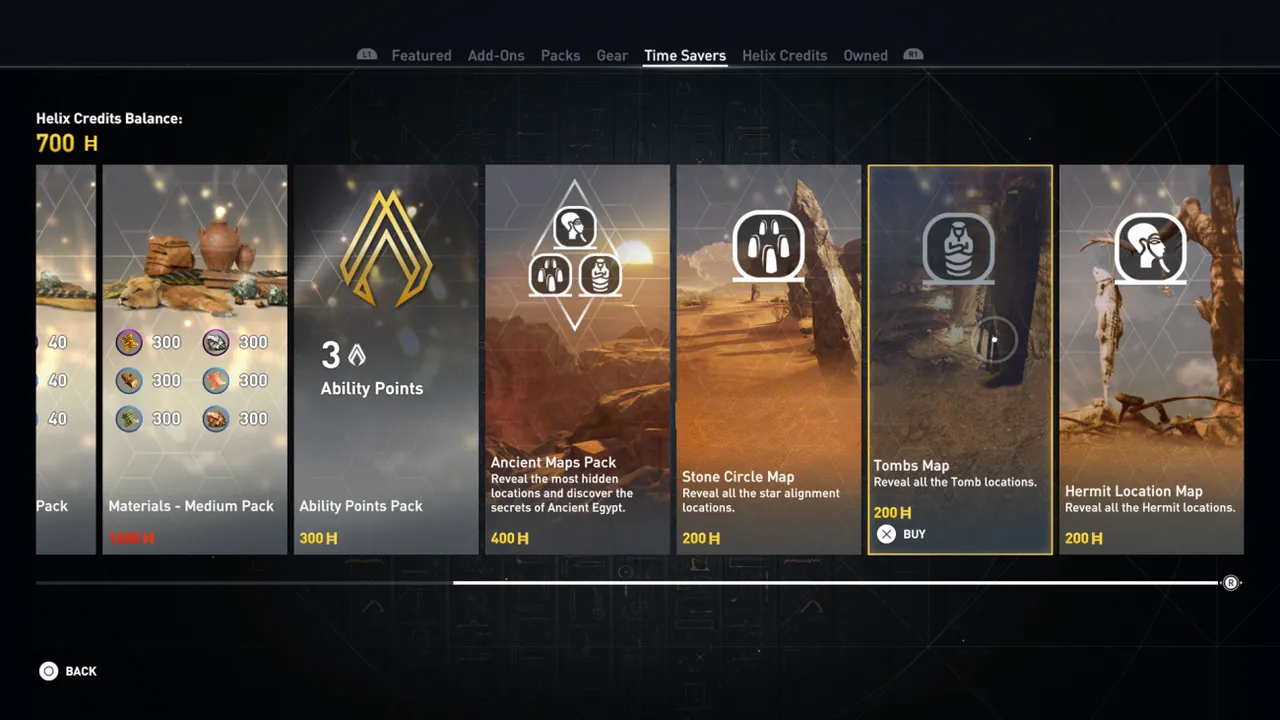
But on the same boat, you also have games like Battlefield who have these shortcuts too, instead they allow you to unlock weapons, way before you should have them. Once again I also bought one of these packs. While going for the platinum in a few of their games, I often forked out a few bucks to have access to the '“end guns” so I could quickly knock out the trophies. Of course, I didn't plan on playing Battlefield in the long run, but even this here offered an unfair advantage in a sense.
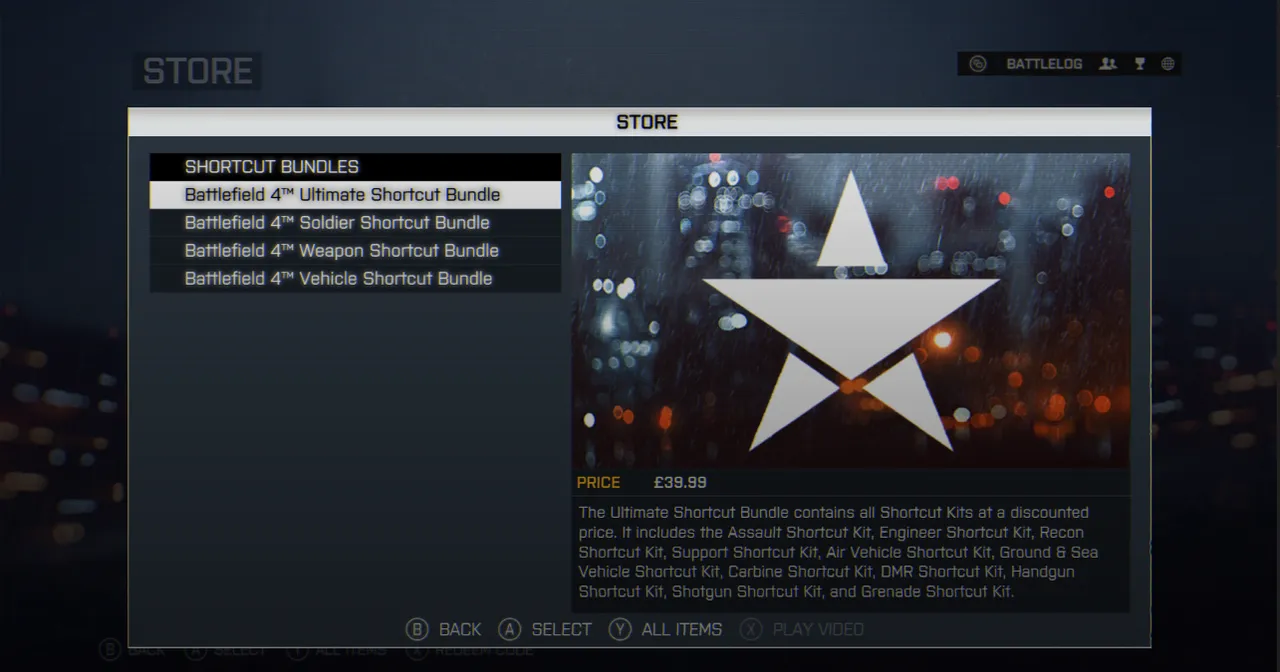
Being able to buy items other people have to earn is a big no in my book. It gives a huge unfair advantage. Now I’m not talking about games like GTA where items are, or at least when I played it, locked behind a certain level before you can purchase them.
When it comes to micro-transactions, everyone is going to have their different opinions. Sure it can give devs more money, and because of that they may release content for free, but when does it become to much? I often see the argument that people shouldn’t have to pay for extra things because they already bought the game, and I think that argument is completely idiotic. I often look at micro-transactions as a form of dlc, because they pretty much are.
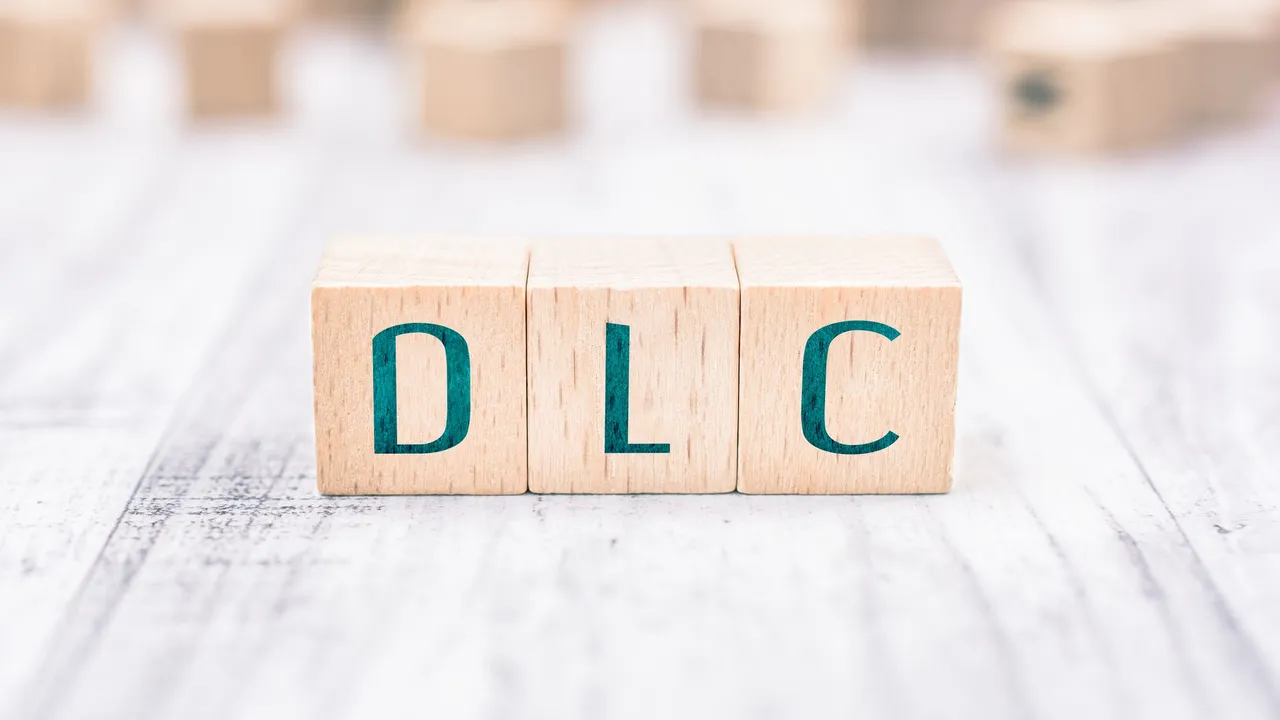
Overall, I think that if implemented right, like so many other things, and if the player sees some type of return on their investment, such as free dlc, then there is nothing wrong with them. Microtransactions often get a bad rap because of how badly other games have implemented them, and revolved aspects of their game around them. I mean anyone else remember the big Star Wars: Battlefield 2 debacle? What are your opinions about them? Do you agree with me or want to argue? Feel free to leave your comments below! Thanks for reading!

Image Source
Español
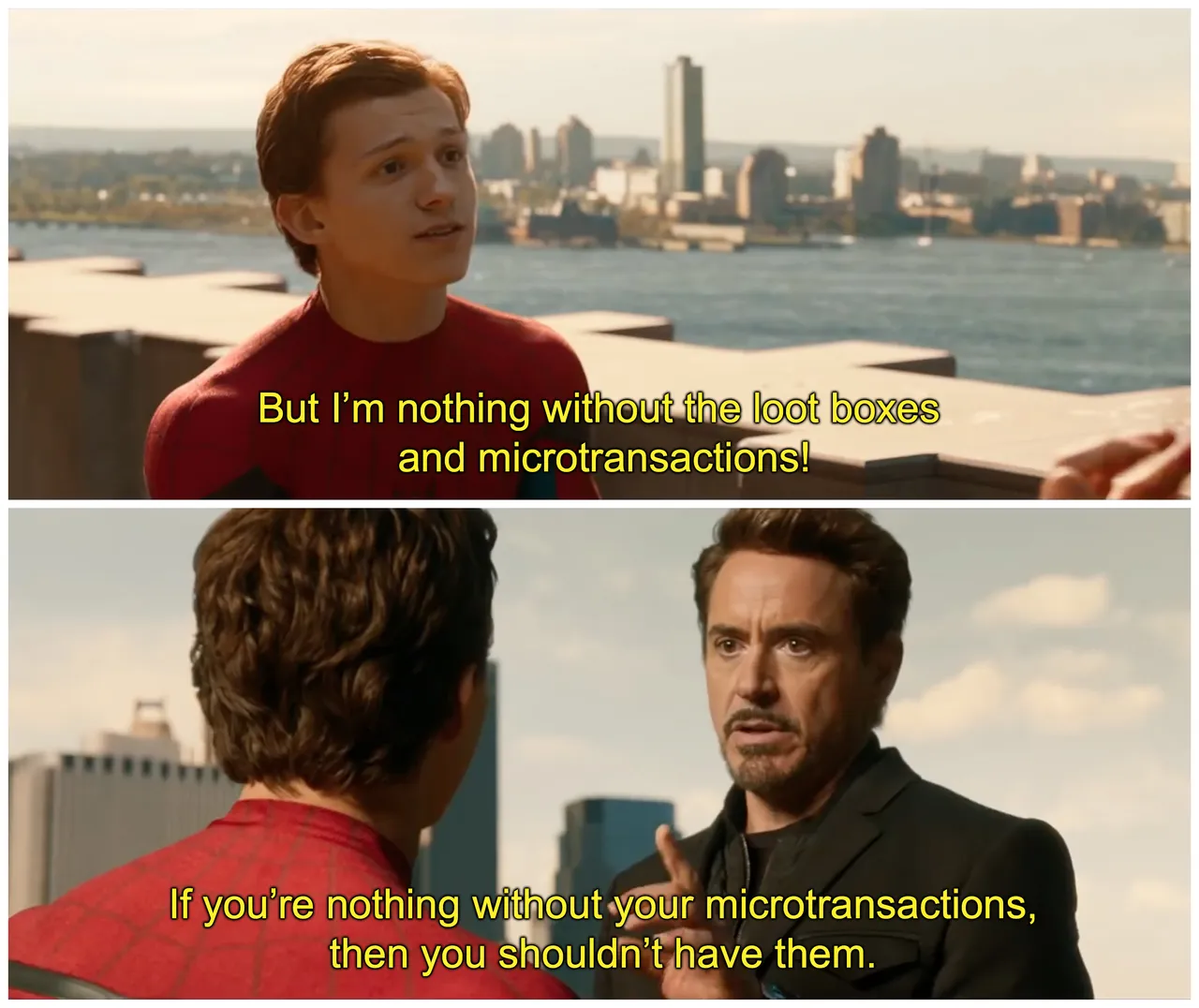
Las microtransacciones son algo difícil. No es difícil en el sentido de su concepto, sino más bien en cómo se implementan. Algunos juegos se basan únicamente en microtransacciones, ofrecen un modelo P2W (pagar para ganar), solo tenlos allí para ahorrar tiempo al jugador o simplemente para darles cosas ingeniosas como cosméticos que realmente no afectan nada. En caso de que seas nuevo en mi serie "Mi experiencia de juego", esta es una serie en la que hablo sobre las cosas que experimento, perra, y simplemente escribo mis pensamientos sobre ciertos temas. Decidí comenzar esta serie principalmente por mis puntos de vista más obstinados, de los cuales tengo muchos. Entonces, con eso fuera del camino, hablemos de micro-transacción.
La primera vez que me encontré con microtransacciones, tenía alrededor de 12 años. Esto fue cuando muchos lugares te permitían comprar "créditos" a través de SMS, y vaya, fue un error. Yo de 12 años me volví loco. Hubo meses en los que la factura de mi teléfono celular se apilaba con créditos comprados para Habbo o puntos Turbine para LOTRO. Mi padre llamaba a la compañía, discutía con ellos y conseguía que la quitaran de la factura. Por supuesto, negué que realmente lo hiciera. Cuando hablo de eso con mis padres ahora, nos reímos. Pero volvamos al camino. Estos juegos no tenían un modelo P2W, a menos que estuvieras jugando un juego que alguien configuró en Habbo. Los créditos en Habbo se usaban principalmente con fines cosméticos, y los Puntos Turbine se usaban para desbloquear cosas en la tienda Turbine, como expansiones. Lo que pasa con los puntos de turbina es que puedes obtenerlos haciendo acciones en el juego. Y a pesar de que mi padre recibió un reembolso de cientos de dólares de Turbine (ahora piedra en pie), todavía tengo y juego en la cuenta que usé cuando tenía 12 años.

Cuando las personas escuchan que un juego tiene microtransacciones, su reacción es negativa y ¿quién puede culparlos? Pero no creo que sean malvados como muchos jugadores. Cuando se trata de juegos que ofrecen cosméticos o pases de batalla, creo al 100 % que beneficia a las comunidades, ya que es una forma de que los desarrolladores ganen dinero después de la compra inicial de su juego y, como resultado, ofrecen más apoyo a el juego. Quiero decir, mira a Rockstar. Mucha gente odia cómo puedes comprar dinero de GTA en el juego, pero debido a esta microtransacción, Rockstar ha podido regalar cada pieza de sus DLC de forma gratuita.
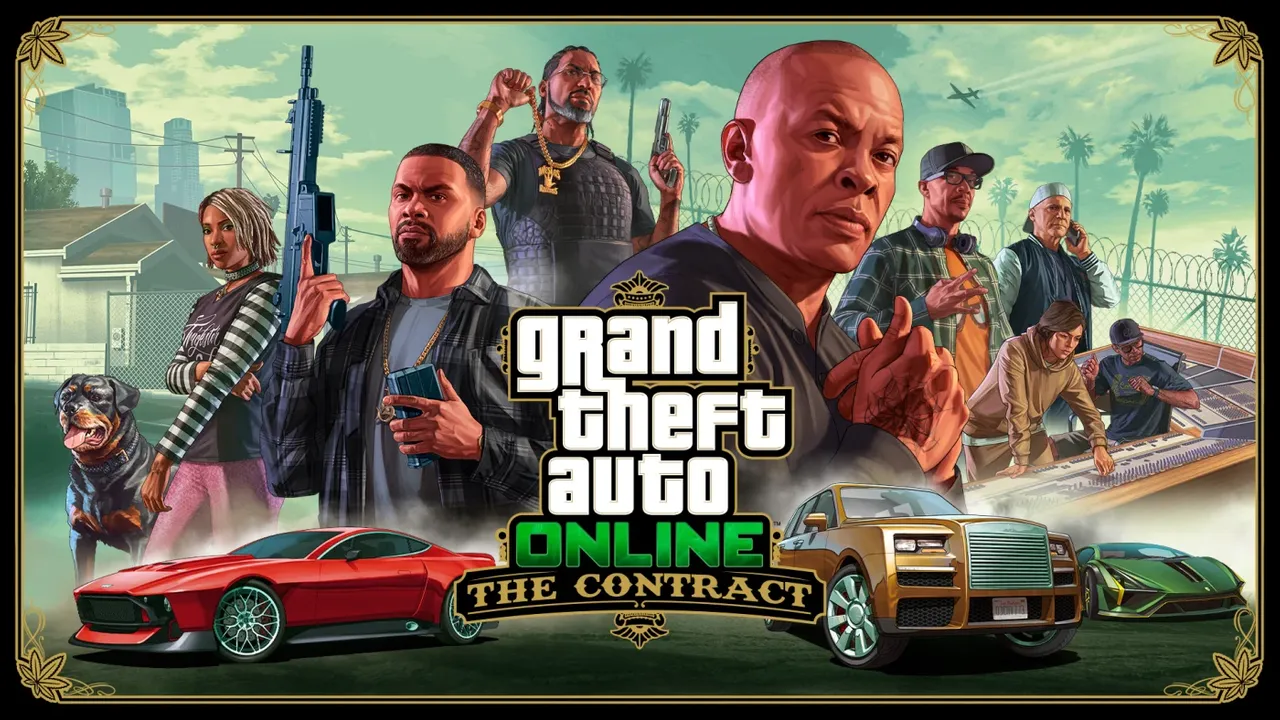
Cuando se convierten en un problema para mí es cuando el juego, o ciertos aspectos del mismo, se construyen a su alrededor. Ahora, esto no se trata de juegos F2P, ya que los desarrolladores necesitan ganar dinero en alguna parte, sino de juegos por los que realmente tienes que pagar y que tienen estas mecánicas. Y el primero que me viene a la mente es/fue Shadow of War.
Para aquellos que no saben, Shadow of War es una secuela del juego de El Señor de los Anillos, Shadow of Mordor. En él jugamos como un guardabosques que está poseído por el espíritu de Celebrimbor. En el juego, fue Celebrimbor quien forjó los anillos para humanos, elfos y enanos, mientras que Suron forjó uno. Shadow of War nos tiene forjando un nuevo anillo para que podamos ayudar a derrotar a Suron.

Con ese pequeño volcado de información, es hora de abordar el problema. El juego final de SoW revela a nuestro alrededor que tenemos que defender los castillos que capturamos durante el juego. Para hacer esto, debemos asegurarnos de que los orcos a los que les lavamos el cerebro siempre estén nivelados. Lo cual cuando jugué tomó muchísimo tiempo. Cuando se trataba de eso, a menudo tenía que crear un ejército completamente nuevo con cada asedio, y sucedía lo mismo con muchas otras personas. A menos que quisieras comprar "cajas de botín" que dejaran caer seguidores orcos que estaban alrededor de tu nivel.

Los jugadores vieron el final del juego por lo que era, una captura de microtransacción. Eventualmente corrigieron esto, haciendo que el final del juego fuera la mitad de largo que antes. Pero tuve que sufrir durante todo el asunto. Me tomó cerca de 8 o más horas en un par de juegos completar el juego final, que simplemente consistía en lo mismo. Ve al territorio A, asegúrate de que todos tus orcos en esa región estén nivelados, si no reclutas más orcos, o subes de nivel a los que tienes, entonces defiéndete del asedio. Y al final de todo esto, todo lo que obtuvimos fue una escena que tiene lugar cuando se destruye el Anillo Único. Aunque me encantó la escena de corte, ya que ofrece un cierre para Talon (el personaje principal), realmente no valió la pena.
Spoiler: dejaré el clip para el video a continuación. Durante el final del juego, Talon usa un nuevo anillo de un Ring Wraith que había matado y se está convirtiendo lentamente en uno. Todo su plan era mantener ocupadas a las fuerzas de Suron en Mordor para que no atacara las otras tierras.

Esto nos lleva a la siguiente parte de este artículo, cajas de botín. Las cajas de botín son apuestas. Eso es un hecho, no una opinión. Tiras dinero con la esperanza de obtener algo bueno, pero también puedes obtener algo malo. Mi opinión cuando se trata de cajas de botín es compleja. No creo que sean algo malo, si hablamos de que estén en juegos M+, siempre y cuando haya una forma de ganar dinero en el juego para obtenerlos, y los artículos no afectan el juego. Creo que no hay razones para tener algo que se pueda comprar, con dinero real, que pueda darle a un jugador una ventaja injusta sobre los demás.

Finalmente, llegamos a la última parte de este artículo, por lo demás semibreve, y se trata de microtransacciones de "atajo". Cuando pienso en esto, Ubisoft inmediatamente me viene a la mente. Estos paquetes generalmente te ofrecen una forma rápida de obtener algo, en el caso de Ubi, a menudo incluyen aumentos de EXP, la capacidad de ver todos los coleccionables en tu mapa, etc. Y, sinceramente, no creo que sean malos. Mi regla general para las microtransacciones (fuera de los artículos que brindan una ventaja injusta) es que si puede obtenerlo en el juego o ganar dinero en el juego para comprar el artículo, entonces está bien. Yo personalmente he comprado este tipo de microtransacciones en juegos de AC, principalmente el coleccionable para Black Flag. Hice esto porque iba por el Plat y no quería estar mirando constantemente mi teléfono para ver dónde estaba ubicado el próximo objeto de colección.
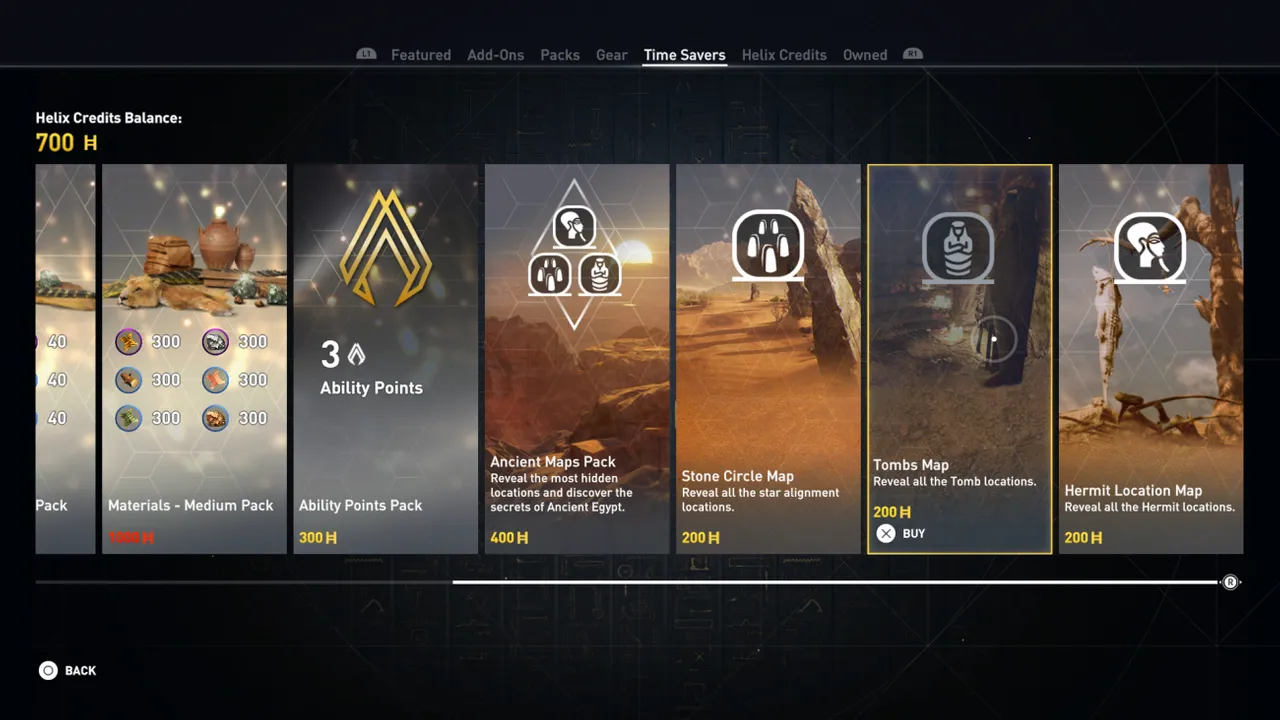
Pero en el mismo barco, también tienes juegos como Battlefield que también tienen estos atajos, en cambio te permiten desbloquear armas, mucho antes de que deberías tenerlas. Una vez más también compré uno de estos packs. Mientras buscaba el platino en algunos de sus juegos, a menudo desembolsaba unos cuantos dólares para tener acceso a las "pistolas finales" para poder ganar rápidamente los trofeos. Por supuesto, no planeé jugar Battlefield a largo plazo, pero incluso esto ofrecía una ventaja injusta en cierto sentido.
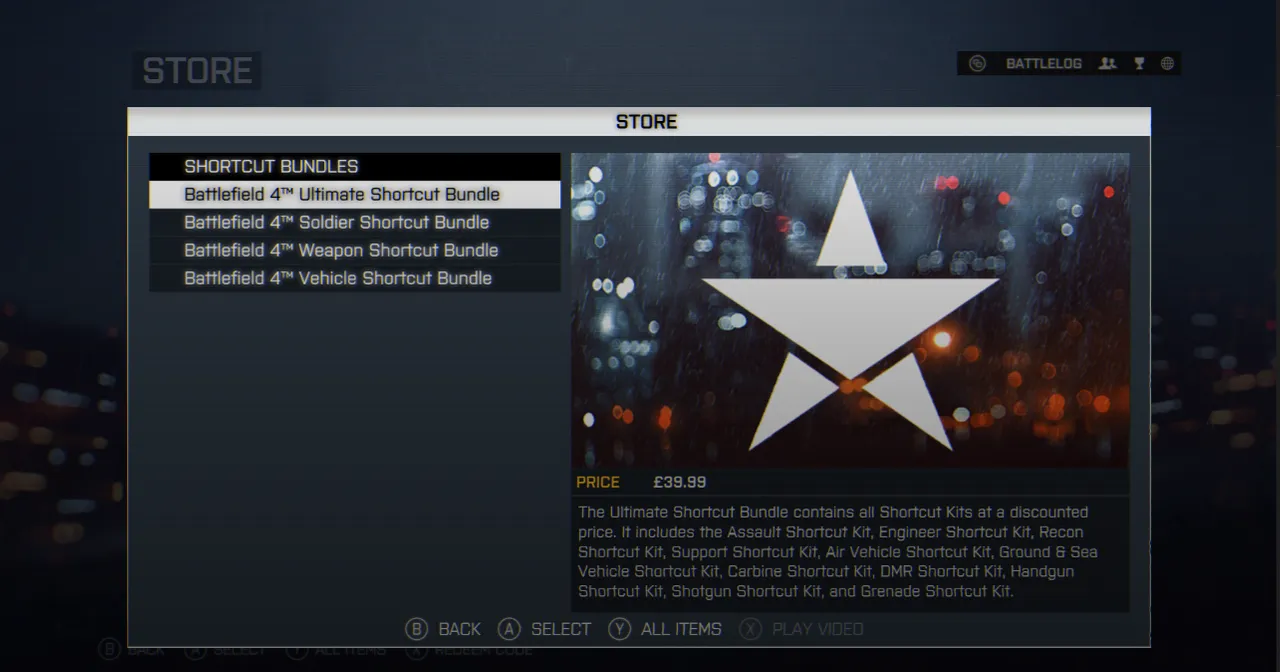
Ser capaz de comprar artículos que otras personas tienen que ganar es un gran no en mi libro. Da una gran ventaja injusta. Ahora bien, no estoy hablando de juegos como GTA donde hay elementos, o donde, cuando los jugué, estaban bloqueados detrás de cierto nivel. Cuando se trata de microtransacciones, todos tendrán sus diferentes opiniones. Claro que puede dar a los desarrolladores más dinero, y por eso pueden lanzar contenido gratis, pero ¿cuándo se vuelve demasiado? A menudo veo el argumento de que la gente no debería tener que pagar por cosas extra porque ya compraron el juego, y creo que ese argumento es completamente idiota. A menudo veo las microtransacciones como una forma de DLC, porque prácticamente lo son.
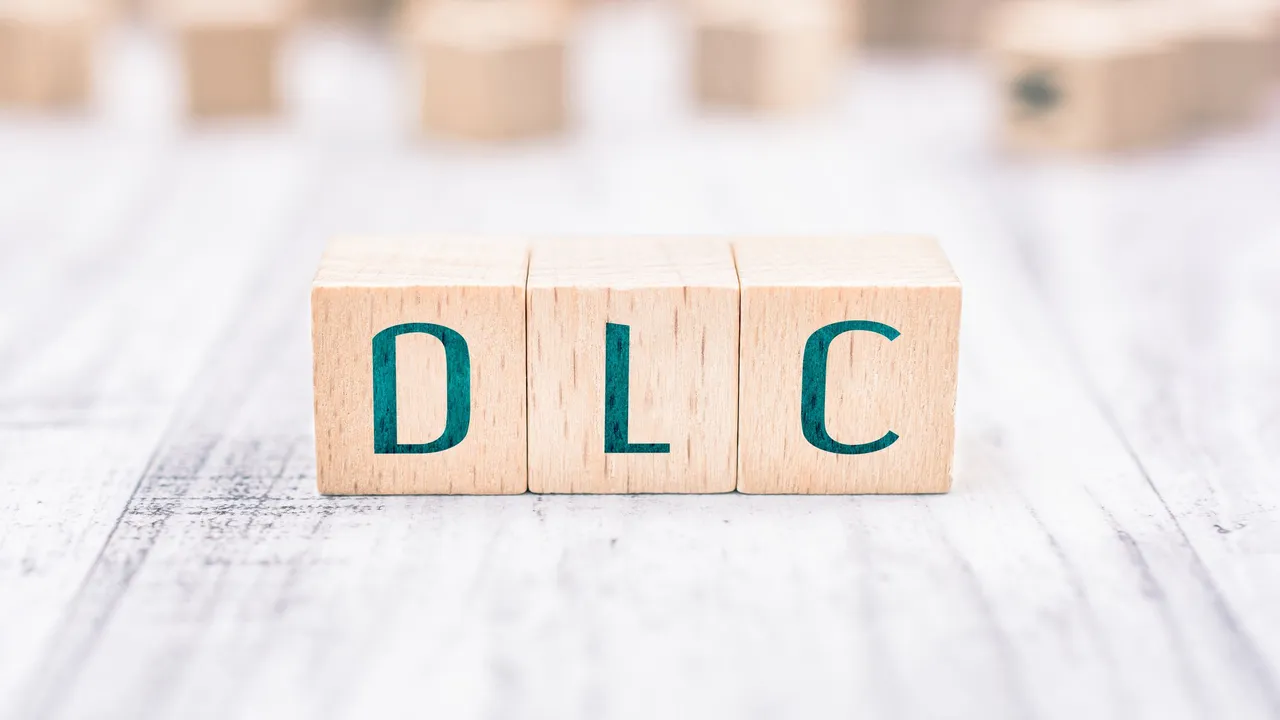
En general, creo que si se implementa correctamente, como muchas otras cosas, y si el jugador ve algún tipo de retorno de su inversión, como DLC gratuito, entonces no hay nada malo con ellos. Las microtransacciones a menudo tienen mala reputación debido a lo mal que otros juegos las han implementado y han girado aspectos de su juego a su alrededor. Quiero decir, ¿alguien más recuerda la gran debacle de Star Wars: Battlefield 2? ¿Cuáles son sus opiniones sobre ellos? ¿Estás de acuerdo conmigo o quieres discutir? ¡Sientáse libre de dejar sus comentarios debajo! ¡Gracias por leer!

